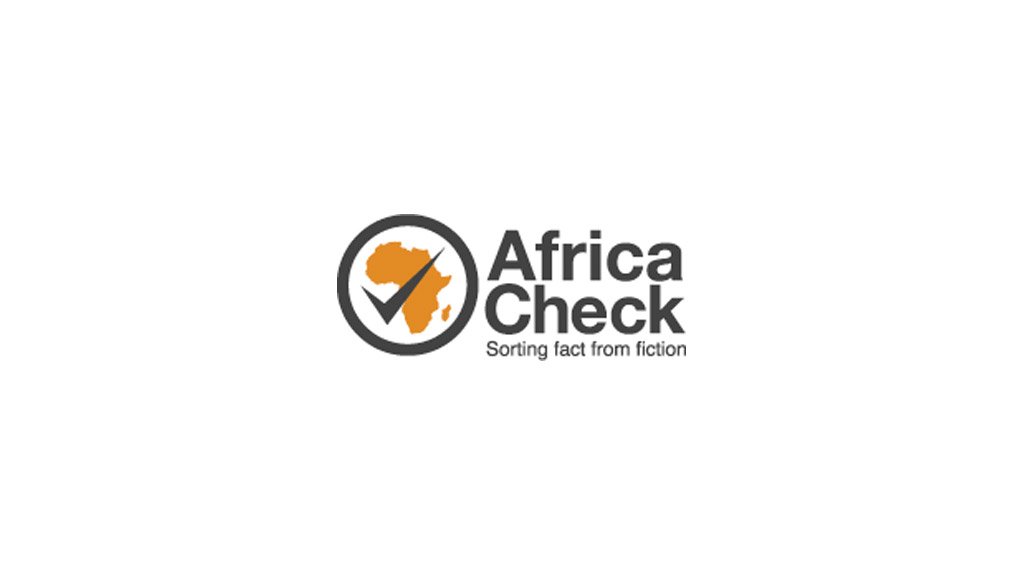Debating South Africa’s 2018 State of the Nation address, president of the South African Local Government Association (SALGA) Parks Tau noted that the country’s water consumption far exceeded international benchmarks.
“Average water consumption in South Africa is 235 litres per capita per day compared to a world average of 185,” said Tau.
SALGA official William Moraka told Africa Check that Tau’s figures were sourced from the International Benchmarking Network’s (IBNET) 2010 data as well as a 2017 benchmarking study from the department of water and sanitation.
With parts of the country currently experiencing strict water restrictions, we studied the data to see if Tau’s claim checked out.
Claim: “Average water consumption in South Africa is 235 litres per capita per day.”
Verdict: mostly-correct
The International Benchmarking Network (IBNET) aims to provide performance comparisons of water and sanitation utility sectors across a number of countries.
The sources Moraka cited showed that South Africa’s total water consumption for 2010 was listed at 172.14 litres per person per day. Average residential consumption was 155.1 litres per person per day.
But the most recent data shows that South Africa had an average total water consumption of 183.89 litres per person per day in 2014. Average residential consumption was 111.79 litres per person per day. These were both much lower than the 235 litres Tau mentioned in his speech.
It is important to note, however, that IBNET’s data is based on “a subset of municipalities that may or may not represent the country average”, according to the organisation.
Average at 233 litres in 2015/16
The other source Moraka provided was a department of water and sanitation study from 2017. It quoted a 2012 Water Research Commission report which estimated South Africa’s water consumption at 235 litres per person per day.
To put together the average per person, the report considered 132 municipalities of a possible 237 from all nine provinces. It used a combination of water balance data provided by the municipalities together with self-assessment scorecards.
However, the department of water and sanitation has more recent figures available, estimating the country’s per person consumption at 233 litres per day in 2015/16.
The highest consumption was reported for Gauteng at 305 litres per person per day, while Limpopo averaged the lowest at 182 litres.
The report notes that “Gauteng has the highest per capita consumption due to the high number of wet industries in the supply area”.
Province Consumption (litres/person/day)
Eastern Cape 200
Free State 209
Gauteng 305
Limpopo 182
KwaZulu-Natal 225
North West 186
Northern Cape 238
Western Cape 201
Mpumalanga 205
National 233
Source: Department of Water and Sanitation
Chair of the International Water Association (IWA) Water Loss Specialist Group, Ronnie Mckenzie, told Africa Check that when reporting per person consumption figures, you need to distinguish between total consumption and consumption after metering.
“In the case of Cape Town, where they target 50 litres/person/day, this is the consumption after the consumer meter which means it excludes things like leakage and commercial/industrial use” Mckenzie further explained.
“The average per capita consumption that we have quoted previously…[is] based on the total water supplied to a town divided by the population,” Mckenzie told Africa Check.
Claim: The world’s average water consumption is 185 litres per person per day.
Verdict: unproven
The sources Moraka provided didn’t show that the world’s average total water consumption was 185 litres per person per day.
The department of water and sanitation directed Africa Check to Willem Wegelin, a director at WRP consulting engineers. He works in water resource engineering, conservation and demand management.
Wegelin co-authored a 2012 report on non-revenue water for the Water Research Commission. He said he used IBNET water consumption data for about 150 countries to estimate that the world’s average was 173 litres per person.
But IBNET told Africa Check that they caution against using these figures to calculate a world average. As mentioned before, IBNET’s data doesn’t necessarily reflect all local government areas in the country and therefore “may or may not represent the country average”.
Therefore it is not possible to accurately estimate a world average.
Researched by Gopolang Makou, Africa Check, a non-partisan fact-checking organisation. View the original piece on their website.
EMAIL THIS ARTICLE SAVE THIS ARTICLE
To subscribe email subscriptions@creamermedia.co.za or click here
To advertise email advertising@creamermedia.co.za or click here











